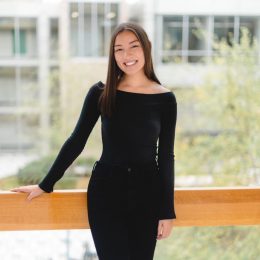
Delaina Ashley Yaun. Paul Andre Michels. Xiaojie Tan. Daoyou Feng. Soon Chung Park. Hyun Jung Grant. Suncha Kim. Yong Ae Yue.
It’s been a hard week.
On Tuesday, March 16, a man shot and killed eight people in three different Asian-owned spas in Atlanta, Georgia. Six of the eight victims were Asian women, and another man survived being shot. Reading the headlines felt like a stab to the chest. The shootings didn’t happen near me, but it almost felt as if they were happening through me — I am a half-Chinese woman, and my people are in danger.
Since the beginning of the COVID-19 pandemic, 3,795 hate incidents targeted toward Asian American Pacific Islanders (AAPI) have been reported to the nonprofit Stop AAPI Hate. Nearly 70 percent of the reports were filed by women, and the majority of respondents are Chinese. At 42.2 percent, Chinese respondents nearly triple the amount of Koreans, who are the second-most frequent respondents. New York also comes in second for having the most reports of hate incidents, with California in first place.
Despite this, investigators have yet to declare whether or not the shootings were a hate crime. Even if the victims had been only white women, targeting members of a certain sex should constitute a hate crime in itself. The same call was made, to designate a shooting as a hate crime, after the Tallahassee yoga studio shooting, carried out by a fascist “incel” — a name used by men who call themselves “involuntarily celibate” — who openly hated and targeted women. If that wasn’t enough, a local news report said the shooter yelled, “I want to kill all Asians” as he fired at the victims in Atlanta.
When I read headlines about anti-Asian hate crime across the United States, I often see words like “rising,” “escalates” or “fueling” used to describe the impact of the pandemic on these incidents. I can’t deny the inextricable tie between the two — still, I am bound to question whether these hate crimes are increasing, or are just becoming increasingly visible. While they have not entirely ruled it out, the failure to deem the Atlanta shootings a hate crime outright is representative of a history of erasing anti-Asian racism.
Asian Americans experience a unique form of racism unlike that of other minority groups. We are often subject to what is called the “model minority myth.” This myth champions Asians as the polite, law-abiding minorities who possess an innate talent and work ethic which allows them to reach higher levels of success than white people. On the surface, it doesn’t seem too bad that we assume intelligence and success of all Asian people — after all, those are admirable qualities. However, the model minority myth is incredibly detrimental to Asian communities.
By assuming greatness of all Asian communities, the model minority myth erases the huge disparities among varying Asian ethnicities. It is also used to pit the Asian community against Black communities by conflating anti-Asian racism with anti-Black racism when the two are not at all the same. Lastly, the model minority myth dismisses the racism Asian people endure due to the assumption that we are equally, if not more, as successful and free as compared to white people. It is this kind of dismissal that creates doubt as to whether the shootings were a hate crime.
The shooter’s claim that he was not racially motivated is simply untrue. In fact, his other excuse that he shot these Asian women to eliminate “temptation” to indulge in his sex addiction only perpetuates his racial bias. The historical fetishization of Asian women as exotic, hypersexual and submissive leads to staggering rates of physical and sexual violence. Even before the Chinese Exclusion Act of 1882, there was the Page Act of 1875, which prohibited Asian, particularly Chinese, women from immigrating to the United States due to the assumption they were prostitutes who would promote polygamy and potentially reproduce with white men. Our bodies have long been colonized for, as Rachel Ramirez puts it, the “Western men’s taking.”
Hearing the descriptions of these innocent, Asian women as mere temptations to be “eliminated” is harrowing. These were people. I want to hear about their lives, their families, their dreams. I don’t give a damn about the 21-year-old incel mass murderer being a “good Christian” who “had a really bad day.” I condemn every media outlet attempting to humanize someone who heartlessly took the lives of eight humans who deserved to live. They deserve a story. Not him.
In the aftermath of the shootings, I want readers to know that one cannot look at these shootings without analyzing the racism, sexism, misogyny and white male supremacy at hand. They cannot be separated. I am Asian and a woman. I see myself in both Xiaojie Tan and Sarah Everard. I am not one or the other. I am not a temptation. I am not a threat. I am not yours, and I am most definitely not OK.
As I said, it’s been a hard week.
Kaitlyn Liu is a junior majoring in English and is assistant Opinions editor


